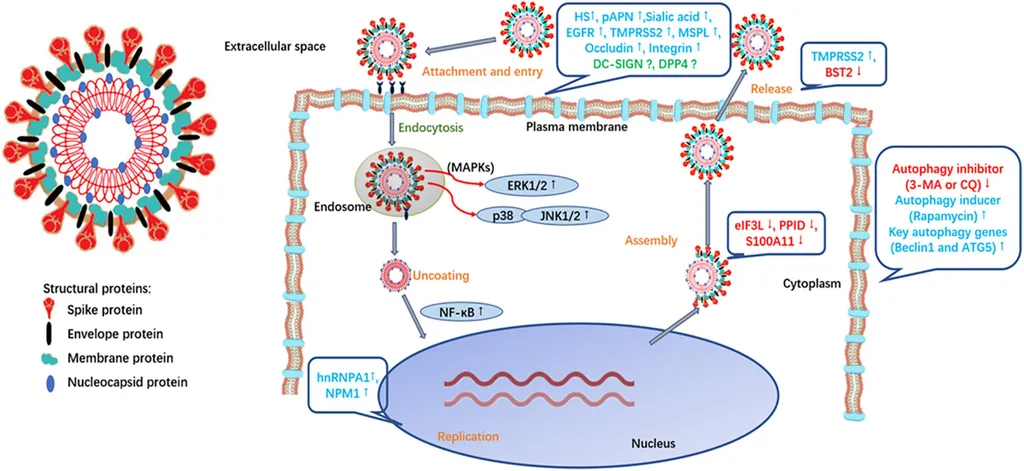In a groundbreaking study published in the *Journal of Virology*, researchers from the National Key Laboratory of Agricultural Microbiology at Huazhong Agricultural University in China have identified a critical host factor for the replication of the porcine epidemic diarrhea virus (PEDV). Led by Yu Zhao, the team employed a CRISPR/Cas9 knockout library targeting porcine membrane proteins to uncover the role of Ribosomal protein SA (RPSA) in PEDV infection.
Porcine epidemic diarrhea, caused by PEDV, has been a devastating disease for the global pig industry, particularly due to its high mortality rate in piglets. Despite its impact, the host factors required for PEDV replication, including receptors, have remained poorly understood until now. “Our study provides new insights into the mechanisms of virus-host interactions and paves the way for the development of broad-spectrum antiviral therapies,” said Yu Zhao, the lead author of the study.
The research revealed that RPSA, known for its role as a receptor for dengue virus, is also a potent host factor for PEDV. However, unlike its role in other viruses, RPSA is involved in the replication stage of PEDV rather than the entry stage. This discovery was made possible through a series of experiments, including inhibitor and activator tests, which demonstrated that knocking out RPSA downregulates the ERK1/2 signaling pathway, impairing PEDV infection.
Moreover, RNA sequencing data indicated that cellular lipid biosynthesis and lipid transport processes were significantly inhibited in the absence of RPSA during PEDV infection. Mechanistic studies revealed that the reduction in total cholesterol and triglyceride levels, resulting from RPSA knockout, was partially mediated by the ERK1/2 pathway. This impairment in lipid accumulation during PEDV replication highlights the critical role of RPSA in the virus’s life cycle.
Interestingly, the study also found that RPSA knockout significantly downregulated the expression of aminopeptidase N (APN) and inhibited infection by transmissible gastroenteritis virus (TGEV) and porcine deltacoronavirus (PDCoV), both of which belong to the swine enteric coronavirus group. This suggests that RPSA is a common host factor for multiple swine enteric coronaviruses, making it a potential target for broad-spectrum antiviral therapies.
The implications of this research are far-reaching for the agricultural industry, particularly in the development of disease-resistant breeding programs and novel drug therapies. By understanding the role of RPSA in PEDV replication, scientists can now explore new strategies to combat this devastating disease and protect the global pig industry.
As the world continues to face the challenges posed by emerging and re-emerging viruses, studies like this one are crucial in advancing our knowledge of virus-host interactions and developing effective antiviral therapies. The findings published in the *Journal of Virology* (translated to the *Journal of Virology* in English) represent a significant step forward in the fight against porcine epidemic diarrhea and other swine enteric coronavirus infections.

